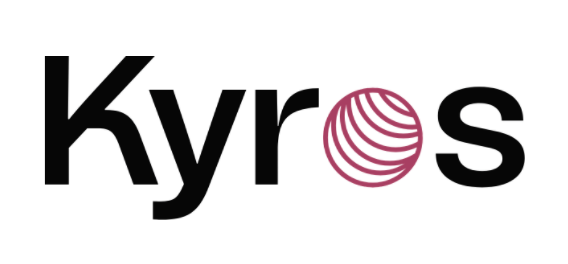Understanding the Basics of KYC and AML Compliance for Businesses
As an AML specialist, you know how important it is for businesses to comply with Anti-Money Laundering (AML) laws and regulations. Failure to do so can result in hefty fines, reputational damage, and even criminal charges. In this article, we’ll explore the basics of KYC (Know Your Customer) and AML compliance for businesses.
 Written by Erling Andersen
Written by Erling Andersen
In this article, We are going to delve into the fundamental aspects of Know Your Customer (KYC) and anti-money laundering (AML) compliance for businesses. Our aim is to enhance strategies for preventing financial crimes and maintaining operational integrity.
To begin, We will discuss the importance of KYC and AML compliance in today’s business landscape. then highlight how these practices are essential for mitigating the risks associated with money laundering, terrorist financing, and other illicit activities. Businesses can protect their operations, reputation, and contribute to global financial system integrity by implementing strong KYC and AML measures.
Next, Explore the key regulations that govern KYC and AML compliance. And examine international standards, such as the Financial Action Task Force (FATF) recommendations, as well as regional directives and local laws. To avoid legal and reputational consequences, businesses must fully understand these regulations and ensure complete compliance.
Moving forward, This article will cover key components of a robust KYC and AML compliance program, including customer identification, verification, ongoing monitoring, and risk assessment.
In conclusion, This article aims to equip businesses with the knowledge and tools necessary to establish and maintain effective KYC and AML compliance programs. By adhering to the regulations, implementing best practices, and staying vigilant against financial crimes. Due to this, businesses can protect themselves and contribute to the overall integrity of the global financial system.
Key Regulations and Compliance Requirements
Businesses in regulated sectors such as banking, finance, gambling, and the real estate industry must comply with AML laws and regulations implemented by governments and regulatory bodies. The specific requirements vary across jurisdictions, but most are guided by the FATF Recommendations.
In the realm of financial services and anti-money laundering (AML) efforts, several key regulations and compliance requirements have been established to combat illicit financial activities and ensure transparency. These regulations impose obligations on businesses and financial institutions to implement effective compliance programs. Here are some of the prominent regulations and compliance requirements:
-
Bank Secrecy Act (BSA) and Anti-Money Laundering (AML) Laws:
The Bank Secrecy Act, enacted in the United States, forms the foundation of AML regulations. It requires financial institutions to establish AML programs, report suspicious activities, and maintain records of transactions.
-
Financial Action Task Force (FATF) Recommendations:
The FATF is an intergovernmental organization that sets international standards and provides guidance on AML and counter-terrorism financing (CTF) measures. Its recommendations serve as a global benchmark for AML compliance.
-
USA PATRIOT Act:
Enacted in response to the 9/11 terrorist attacks, the USA PATRIOT Act expanded AML and CTF measures in the United States. It requires financial institutions to establish robust customer identification programs (CIP). Als perform enhanced due diligence (EDD) for high-risk customers, and share information with law enforcement agencies.
-
European Union’s Fourth and Fifth Anti-Money Laundering Directives (AMLD):
The AMLD sets out the AML requirements for EU member states. It mandates customer due diligence (CDD), beneficial ownership identification, and enhanced scrutiny for politically exposed persons (PEPs).
-
Financial Crimes Enforcement Network (FinCEN) Requirements:
FinCEN, a bureau of the U.S. Department of the Treasury, enforces AML regulations in the United States. It requires financial institutions to file Currency Transaction Reports (CTRs) for cash transactions above a specified threshold and Suspicious Activity Reports (SARs) for suspicious activities.
-
Know Your Customer (KYC) Requirements:
KYC requirements are part of AML compliance and involve verifying and documenting customer identities, conducting risk assessments, and ongoing monitoring of customer activities.
-
Foreign Account Tax Compliance Act (FATCA):
FATCA, enacted in the United States, aims to combat tax evasion by requiring foreign financial institutions to report information about U.S. account holders to the Internal Revenue Service (IRS).
-
General Data Protection Regulation (GDPR):
Although primarily focused on data protection and privacy, GDPR imposes obligations on businesses to ensure the lawful processing of personal data and protect individuals’ rights.
You can read more about Data Protection as we have already delve into in the article of A Deep Dive into the EU Travel Rule: Impacts on Privacy and Data Protection
-
Correspondent Banking Standards:
Correspondent banks, which provide services to other financial institutions, are subject to specific AML standards. Why? to prevent the misuse of correspondent banking relationships for illicit activities.
-
Country-Specific Regulations:
Each jurisdiction may have additional AML and CTF regulations tailored to their specific needs. For example, the Financial Conduct Authority (FCA) in the United Kingdom enforces AML requirements for financial institutions operating in the UK.
Complying with these regulations and requirements is essential for businesses and financial institutions. Why? to prevent money laundering, terrorist financing, fraud, and other financial crimes. Implementing robust compliance programs, conducting risk assessments, performing customer due diligence, and reporting suspicious activities are key components of meeting these regulatory obligations.
Some of the major AML regulations include
- The 4th Anti-Money Laundering Directive (4AMLD) and 5th Anti-Money Laundering Directive (5AMLD) in the European Union.
- The Bank Secrecy Act (BSA) and FinCEN regulations in the United States.
- The Proceeds of Crime Act 2002 (POCA) in the UK.
These regulations require businesses to implement adequate AML programs that consist of:
- Appointing an MLRO (Money Laundering Reporting Officer) to oversee compliance
- Conducting risk assessments to identify vulnerabilities
- Implementing KYC, CDD and enhanced due diligence (EDD) procedures for verifying customer identities and monitoring relationships
- Monitoring transactions and filing suspicious activity reports (SARs)
- Maintaining record-keeping procedures for audit trails
- Conducting AML training and compliance reviews
- Reporting to regulatory and government agencies as required

Know Your Customer (KYC) Compliance
KYC compliance refers to the set of procedures and policies that businesses and financial institutions must follow to verify and authenticate the identity of their customers. It is a crucial aspect of anti-money laundering (AML) and counter-terrorism financing (CTF) efforts, as it helps mitigate the risks associated with financial crimes.
The primary goal of KYC compliance is to ensure that businesses have a clear understanding of their customers, their financial activities, and the level of risk they may pose. By implementing robust KYC procedures, businesses can establish the legitimacy of their customers. Due to this, They can detect and prevent money laundering, identify high-risk individuals or entities, and comply with regulatory obligations.
KYC compliance typically involves collecting and verifying specific customer information, such as:
- Identity Verification: Businesses need to collect official identification documents (e.g., passport, driver’s license) to verify the identity of customers. This helps confirm that the customers are who they claim to be.
- Address Verification: Collecting proof of address documents (e.g., utility bills, bank statements). It helps establish the physical address of customers and ensures accurate contact information.
- Risk Assessment: Businesses need to assess the level of risk associated with each customer. This involves evaluating factors such as the customer’s occupation, source of funds, country of residence, and political exposure.
- Customer Due Diligence (CDD): CDD involves gathering additional information about customers, their business activities, and the purpose of their transactions. This helps businesses assess the legitimacy of customer relationships and identify any red flags.
- Ongoing Monitoring: KYC compliance requires continuous monitoring of customer accounts and transactions for suspicious activities. This helps businesses detect and report any unusual or potentially illicit transactions.
Benefits of Robust KYC and AML Compliance
Robust Know Your Customer (KYC) and Anti-Money Laundering (AML) compliance measures provide several benefits to financial institutions and the overall financial system. Some of these benefits include:
-
Mitigating Money Laundering and Terrorist Financing Risks
KYC and AML compliance measures help identify and verify the identities of customers, enabling financial institutions to detect and prevent money laundering and terrorist financing activities. By implementing robust KYC procedures, institutions can better assess the legitimacy of customer transactions and identify suspicious activities.
-
Enhancing Risk Management
Effective KYC and AML compliance frameworks contribute to a stronger risk management system within financial institutions. These measures help identify high-risk customers, transactions, and jurisdictions. Also allowing institutions to allocate resources and implement appropriate risk mitigation strategies.
-
Protecting Reputation Integrity
Compliance with KYC and AML regulations safeguards the reputation of financial institutions. By preventing involvement in illicit activities, institutions can maintain the trust and confidence of their customers, regulators, and stakeholders. This, in turn, helps protect the institution’s brand value and long-term sustainability.
-
Meeting Regulatory Requirements
Compliance with KYC and AML regulations is a legal obligation for financial institutions in many jurisdictions. Adhering to these requirements helps institutions avoid penalties, fines, and potential legal actions from regulatory authorities. It also ensures that institutions stay in good standing with regulatory bodies, fostering a positive relationship with regulators.
-
Strengthening Customer Relationships
KYC procedures provide an opportunity for financial institutions to gather comprehensive information about their customers. This enables institutions to better understand their customers’ needs, preferences, and financial goals, leading to personalized and tailored services. Strong customer relationships can enhance customer loyalty and satisfaction, ultimately contributing to the institution’s growth and success.
-
Safeguarding the Financial System
Effective KYC and AML compliance measures contribute to the overall stability and integrity of the financial system. By preventing the infiltration of illicit funds, institutions help maintain the integrity of the banking system. Also protect the economy from financial crimes, and promote fair and transparent financial transactions.
-
Promoting Global Financial Security
International cooperation in KYC and AML compliance is crucial in combating cross-border money laundering and terrorist financing activities. Robust compliance measures facilitate information sharing. Also cooperation among financial institutions, regulatory authorities, and international organizations. It strengthening global efforts to combat financial crimes and promote financial security.
It’s important to note that the specific benefits of robust KYC and AML compliance may vary depending on the jurisdiction. Also the nature of the financial institution, and the effectiveness of the implemented measures.
The Power of Kyros AML Data Suite
In the world of financial services, understanding and complying with Know Your Customer (KYC) and Anti-Money Laundering (AML) regulations are essential for businesses. Why? to protect themselves and the integrity of the financial system. The Kyros AML Data Suite offers powerful tools and capabilities to support businesses in their KYC and AML compliance efforts.
Key Features and Capabilities
The Kyros AML Data Suite provides a wide range of features and capabilities designed to assist businesses in their KYC and AML compliance journey. Some of the key features include:
1.Overview of Kyros AML Data Suite Features
- Comprehensive Customer Due Diligence (CDD): The Kyros AML Data Suite offers a comprehensive CDD solution, allowing businesses to gather and verify customer information efficiently. It provides access to extensive global databases, enabling businesses to perform identity verification, beneficial ownership checks, and politically exposed person (PEP) screening.
- Enhanced Risk Assessment: With advanced risk assessment capabilities, the Kyros AML Data Suite enables businesses to evaluate the risk associated with their customers and transactions. It leverages sophisticated algorithms and data analytics to generate risk scores and alerts, helping businesses identify high-risk entities and take appropriate measures.
- Automated Watch list Screening: The suite includes automated watch list screening functionality, allowing businesses to check customer data against global sanctions lists. Also regulatory watchlists, and law enforcement databases. This helps businesses ensure compliance with sanctions regulations and avoid engaging with prohibited individuals or entities.
- Real-Time Transaction Monitoring: The Kyros AML Data Suite offers real-time transaction monitoring, allowing businesses to detect and flag suspicious activities promptly. It leverages advanced technologies, such as machine learning and pattern recognition, to identify anomalies and generate alerts for further investigation.
2.Benefits of Kyros AML Data Suite
- Regulatory Reporting and Compliance: The suite streamlines the regulatory reporting process, assisting businesses in meeting their reporting obligations. It automates the generation of comprehensive reports, ensuring accuracy and timeliness in compliance with regulatory requirements.
- Benefits for Businesses: By utilizing the Kyros AML Data Suite, businesses can experience several benefits in their KYC and AML compliance efforts:
- Enhanced Compliance Efficiency: The suite’s advanced features and automation capabilities streamline compliance processes, saving businesses time and effort. It simplifies data collection, verification, and monitoring tasks, allowing businesses to focus on strategic initiatives.
- Improved Risk Management: With comprehensive risk assessment and monitoring tools, businesses can effectively identify and mitigate risks associated with their customers and transactions. The suite’s advanced analytics help businesses gain insights into risk trends and patterns, enabling proactive risk management strategies.
3.How Kyros AML Data Suite Can Help Businesses
- Reduced Compliance Risks: By leveraging the Kyros AML Data Suite, businesses can minimize the risk of non-compliance with KYC and AML regulations. The suite’s watchlist screening and transaction monitoring capabilities help identify and prevent potential money laundering or terrorist financing activities, safeguarding businesses from legal and reputational risks.
- Enhanced Customer Due Diligence: The suite’s comprehensive CDD capabilities enable businesses to perform thorough customer due diligence processes. This ensures that businesses have a clear understanding of their customers, their financial activities, and any associated risks, fostering a strong compliance culture.
- Improved Operational Efficiency: The Kyros AML Data Suite automates manual processes, reducing the reliance on manual data entry and verification. This leads to improved operational efficiency, faster on boarding of customers, and reduced human error.
- Strategic Decision-Making: The Kyros AML Data Suite provides businesses with valuable insights and data analytics that can support strategic decision-making. By leveraging the suite’s risk assessment and monitoring capabilities, businesses can make informed decisions regarding customer relationships, transaction approvals, and resource allocation.
Summary
In today’s complex regulatory landscape, businesses must prioritize KYC and AML compliance to mitigate financial crime risks and protect their reputation. The Kyros AML Data Suite offers a powerful set of tools and capabilities that can assist businesses in meeting their compliance obligations effectively. With its comprehensive customer due diligence, enhanced risk assessment, automated watch list screening. Also real-time transaction monitoring, and regulatory reporting features, the Kyros AML Data Suite empowers businesses. Why? to strengthen their compliance frameworks, improve operational efficiency, and make informed decisions. By leveraging the power of the Kyros AML Data Suite, businesses can navigate the regulatory landscape with confidence, safeguard their operations, and contribute to a secure and transparent financial ecosystem.
Conclusion
KYC and AML compliance have become imperative in regulated sectors like banking and finance to curb financial crimes at a global scale. Establishing a robust compliance program with customer due diligence, risk assessments, transaction monitoring and reporting requirements helps prevent money laundering and maintain the integrity of the financial system.
Although regulations frequently update to address new technologies and criminal methods, the fundamentals remain unchanged. Businesses that consistently apply KYC and AML best practices through a risk-based approach will continue meeting their compliance obligations, combating financial crime, and driving operational efficiencies. With the support of Reg-tech solutions that reduce manual effort and improve effectiveness, KYC and AML compliance becomes an increasingly strategic priority.
By understanding the basic regulations and procedures involved in KYC and AML compliance, regulated businesses can strengthen their financial security defenses and compliance frameworks to avoid the exploitation of the financial system for criminal purposes. Together, we can work to eliminate safe havens and restrict the cross-border flow of laundered money and terrorist finances.
Share article on

